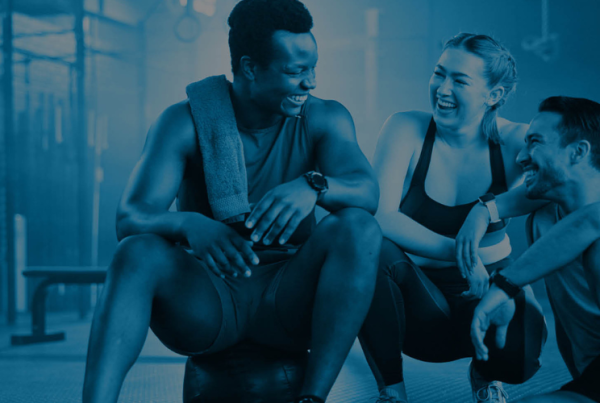Kickstarted due to the COVID-19 crisis, digitisation is here to stay. We meet the tech brands helping to keep fitness alive during lockdown and beyond. From business management to booking systems, live streaming and content conversion, the solutions are there and the future is digital.
Search insights on Google Trends show us that consumer behaviours have become increasingly digital since the pandemic and subsequent lockdown. No surprise then that tech companies offering services to fit pros have witnessed a growth in their business since March. We spoke to the brands solving fit pros’ problems and asked them what they think is coming next.
In 2011, Rob Lander from Fisikal was looking for an efficient way to manage his portfolio of personal training clients. What emerged was an online service allowing personal trainers and fitness businesses to take bookings and payments (including integration to third party apps like Xero, the accounting system for better business analysis). Also helping fitness businesses to manage their schedule, Fibodo provides a subscription-based booking and scheduling digital service. Both businesses have seen the opportunity that our ‘new normal’ presents.
“People will spend more time at home due to a rise in home-based working,” predicts Lander and, as a result, “there will be a growing demand for home exercise equipment. To help fitness professionals capitalise on this, our functionality also enables the creation and management of an online shop,” he adds.
“Trainers and instructors need to embrace technology and future-proof their businesses,” says Stuart Rank from Fibodo, which launched in 2014 and describes itself as an “all-in-one digital platform for time-led businesses”.
He adds, “Removing day-to-day admin means they can concentrate on delivering the best possible experiences in what is becoming a very ‘noisy’ sector.”
Ben Camara, who launched Remote Coach in 2019, says, ‘‘We have seen a 400% growth month-on-month since COVID-19 and have done over 3,000 live sessions.” Remote Coach provides a tailored, personal service, something that digital and AI technology has facilitated. As well as live streaming sessions (with calories burnt and heart rate recorded) and programme design, Remote Coach offers AI-driven ‘habit coaching’ outside of the session.
TriadXP has also recorded accelerated growth in its business during the pandemic: “We saw a 300% increase in website sessions from February to March, with a 45% increase in April,” says founder Bill Grindle. TriadXP is a new technology platform that enables fitness professionals to quickly pivot by “converting their workouts from their books, ebooks, blogs, etc. into digital workouts without investing any money or knowledge about technology,” explains Grindle.
“Fit pros send us their files and our cloud-based platform converts their workout content into audio-visual, app-compatible workouts. We then sell and distribute them through our online store, their own website and social channels, which means they also benefit from another revenue stream.”
Coronavirus brought about fear and gloom for many in our industry, but our enterprising businesses found ways to make things work for more people. Community-minded Fibodo launched fit4thefight in March, which promoted the spare capacity of trainers for free so they could reach new customers, including employee benefits providers and NHS key workers. Fisikal made entry-level subscription free and Remote Coach offered a 60-day free trial to help trainers struggling with the pandemic. Triad XP were able to quickly respond to businesses needing to pivot, including helping a client providing in-person athletic performance coaching to student athletes. “When schools closed down, they were not able to meet in person and had no digital platform. Within 24 hours, our service and platform converted three excel spreadsheet workouts into audiovisual mobile-exercise routines,” says Grindle.
The digital revolution is set to grow, with 84 million people using fitness apps in the US, but TriadXP’s Grindle believes one-to-one coaching and group coaching will still be in demand, suggesting that technology is “making it possible to reach more people”.
“Apps and live streaming are the tip of the iceberg,” predicts Grindle. “Technology will continue to advance, with sensors to capture movement and artificial intelligence to customise and optimise fitness choices and delivery. Digital solutions will continue to create opportunities for everyone and we want to give every fit pro a chance to participate in this evolution,” he concludes.







